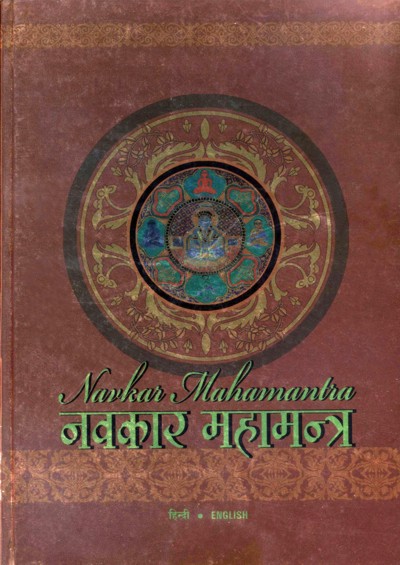Page 32+33


Text:
First major vow - Non-violence (Ahimsa):
The two aspects are refrainment from violence and practicing non-violence. Violence has been described as causing injury to any living being due to non vigilant conduct. In other words we should do to others what we like for ourselves and do not do to others what we do not like for ourselves. Non violence is the Soul of Jainism. It is the hallmark of Jainism. It is comprehensive and includes other vows like truth, non theft, chastity, non attachment and the entire Jain ethics. It is synonymous with Right Conduct. Without non-violence Jainism is like a body without Soul. Non-violence has contributed immensely to vegetarianism. It has converted innumerable non-vegetarians to vegetarians. It has the motto "to live and let live." The five violations (atichar) pertaining to the vow of non-violence are to pierce, to bind, to over-load, to cause pain and to starve and have to be taken care of by the shravaks and sadhus.
Second vow - Truth (Satya Vrata):
To deliberately or negligently convey or transmit what is false or improper is untruth. However, conveying truth that causes pain to others should also be avoided. To speak the truth and practice truth is the positive aspect of this vow. There are five violations of this vow (atichar) i.e. spreading false doctrine, back-biting, cheating, disclosing secrets and not keeping words and promises. They are to be avoided by Shravaks and Saints.
Third vow - Non-Stealing (Achaurya Vrata):
Fourth vow - Practicing Celibacy (Brahmacharya Vrata):To take intentionally any thing that has not been given is theft as told by Vachak Umaswati. On the positive side, to take or give someone else the property that does not belong to you or belonging to another should be avoided.
There are five infringements (Atichar) of the vow i.e.:
- Suggesting methods of stealing
- Receiving stolen property
- Smuggling or evading law
- Adulteration
- Use of false weights and measures
Fifth vow - Non-attachment (Aparigraha):Any act - mental, verbal or physical by sexual passion through the couple or individual is known as sex. It is not only stressed in Jainism but also in other religions. Saints should observe it wholly and Shravaks may follow it partly but only with spouse.
There are five faults to the vow:
- Sex out of wedlock
- Unnatural gratification as lesbian or homosexual relations,
- Lust (Vasna)
- Sexual passion for others
- Association with immoral persons.
Non-attachment or non attraction towards possessions is the real criterion behind the vow of non-attachment to property. Jain Saints overcome all attachment or involvement with any type of property. Shravaks may do it partly.
Jain vows once taken are sacrosanct or binding. The sanctity attached to them is well known. It may be recalled that the mother of Mahatma Gandhi persuaded her son, Mohan Dass Karam Chand Gandhi, apostle of non-violence in his teenage to take a vow in front of a Jain Saint respected Becharji that he would abstain from wine, women and meat.
 Prakash Sancheti
Prakash Sancheti
